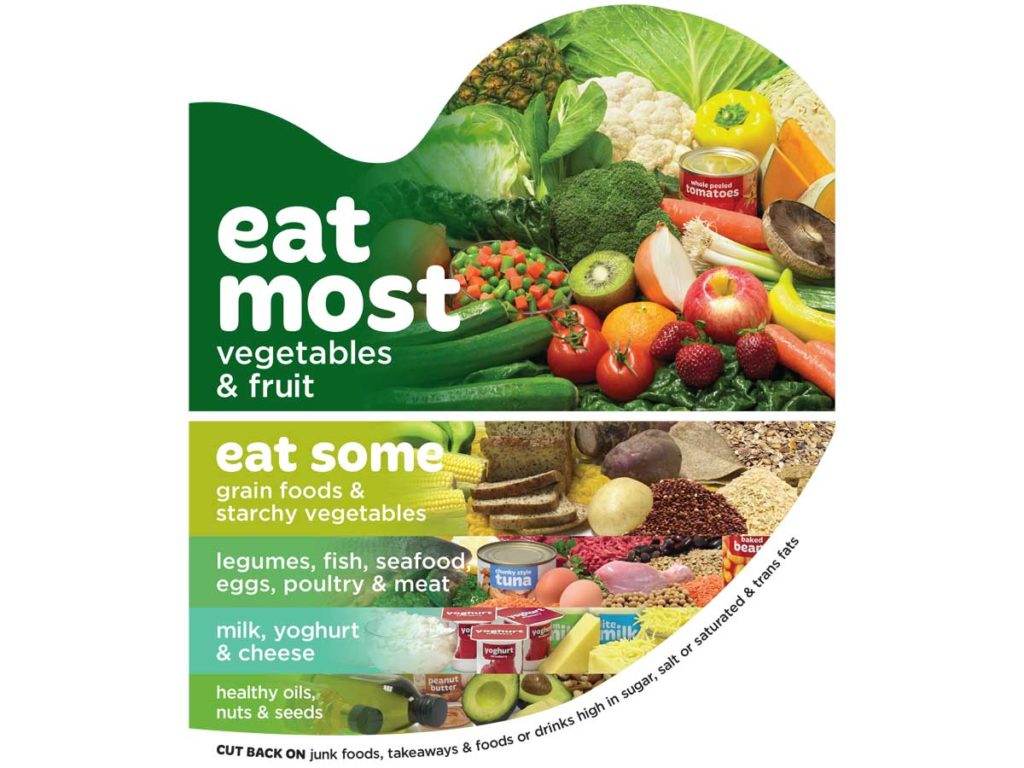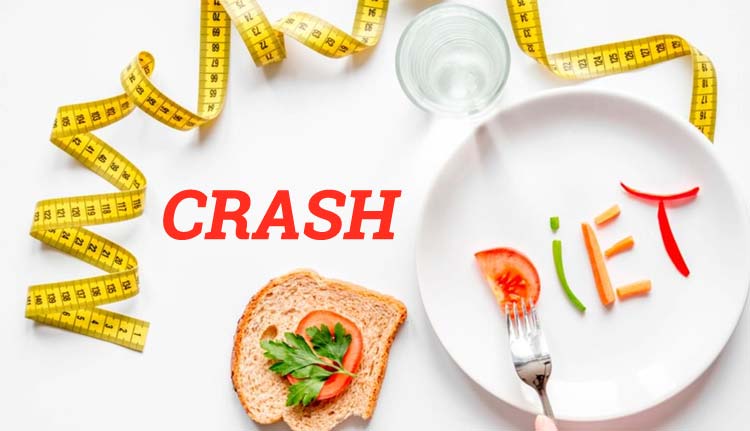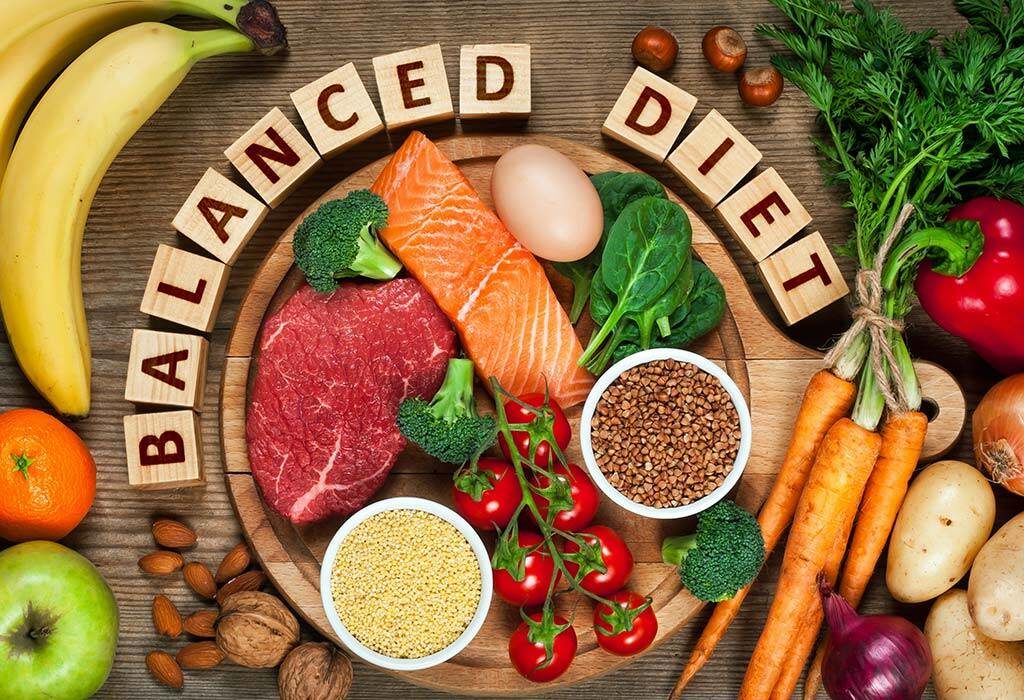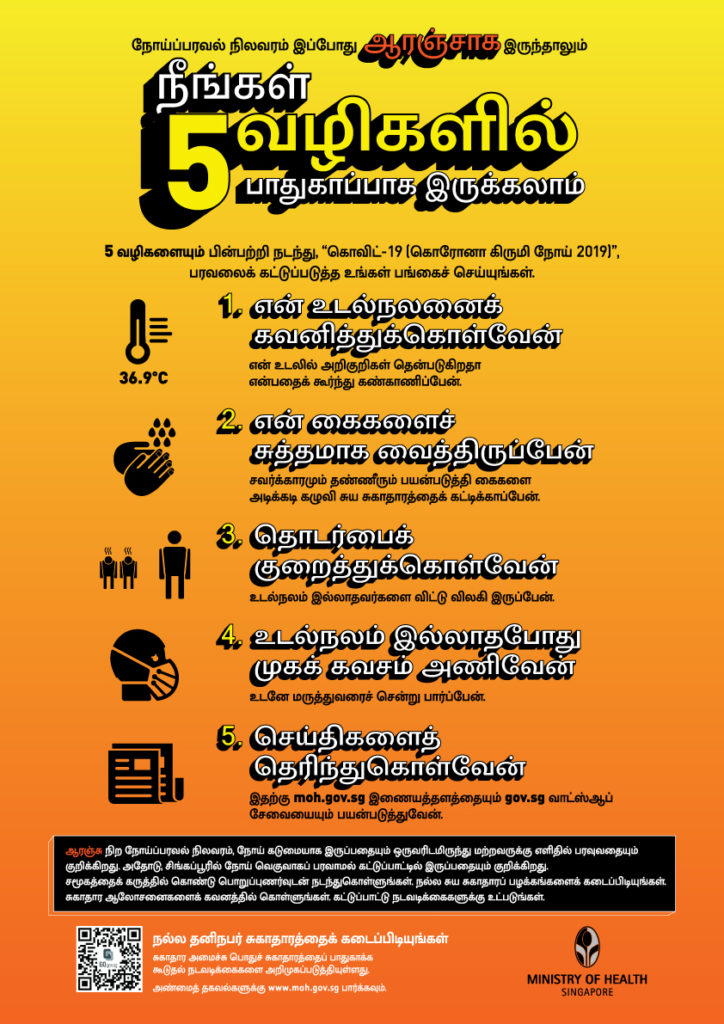As a dietitian, I am disturbed by the fast pace at which crash diets are gaining popularity! And I strongly believe that people need to be aware of the potential health hazards of these currently trending diets. Nutrition is a basic prerequisite to sustain life. A balanced and nutritious diet is one which provides all the nutrients in required amounts and proper proportions. It can easily be achieved through a blend of four basic food groups namely:
- Cereals millets and pulses
- Vegetables and fruits
- Milk and milk products, eggs, meat and fish
- Nuts and oil seeds
The quantity of nutrient requirement varies with age, gender, physiological status and physical activity. A balanced diet should offer around 60-70% of total calories from carbohydrates, 10 – 12 % from proteins and 20 – 25% from healthy fat and should also other provide sufficient dietary fiber, antioxidants (Vitamin A, C, E, Beta – carotene, selenium etc.) which protect the human body from free radical damage.

Crash diets are modified diets undertaken on an urgent short-term basis with an aim of achieving rapid weights loss, improving blood sugar control etc. There are multiple crash diets that have sprung up recently and the most popular ones are low carbohydrate diets (Atkins, Zone diet), high fat diets (Ketogenic diet), low glycemic index diet, high protein diet (Paleo diet) and liquid diet. A crash diet is similar to a crash course wherein one cuts off either the fat and/or the carbohydrate intake and thus the calorie amount is drastically decreased (600 – 800 kcals/day instead of 1500-2000 kcals/day).
Crash diets often appear to be working in the immediate term. The diet sends signals to our body to get into starvation mode, where we will experience rapid onset of weight loss, which is mostly due to decrease in muscle mass and not the fat mass.

It is important to note that crash diets carry both short term and long term health risks. The most common short term risk is nutritional deficiency. Carbohydrates are the body’s main source of energy and restricting them completely can cause hypoglycaemia. Food devoid of carbohydrates is going to be low in fibre as well, leading to constipation and infection in the digestive tract.
Long-term risks of crash diets include damage to the brain, kidney, heart and other vital organs. Some established complications are:
- Eating disorder
- Metabolic disorder
- Anxiety
- Depression
- Muscle loss
- Compromised immunity
- Impaired brain function
- Weak bones
- Poor attention span
- Hair loss
- Skin problems
- Dehydration
- Cardiac failure
- Renal failure
False claims made by crash diet proponents:
Rapid weight loss – In reality, you won’t lose fat but rather lose muscle, bone and water
Restricting or over – Consuming of foods groups–It is better to avoid diets that severely restrict food groups or allow you to eat unlimited quantities of certain foods
Combining foods – There is no evidence that combining certain foods enhances weight loss; eg; Cinnamon powder drink and other preparations
Exercise not necessary –The truth is without adequate exercise the weight you lose will come right back
Crash diet leads to heart diseases:
Crash diet is harmful for our heart health too. In my experience at Cardiac Wellness Institute, I have cared for individuals who were diagnosed with severe coronary blocks after following high-fat diets for a few months and for others who have had several attempts at crash diets for weight loss and had multiple nutritional deficiencies.
Research has shown that individuals on a very low calorie diet suffered heart failure. Low calorie diet can causes abnormal heart rhythms that can be fatal when body levels of magnesium or potassium dropped in susceptible individuals. Excessive dieting can cause cardiac stress, potentially leading to heart attack. Every individual should consume a nutrient dense diet that includes vitamins, minerals, proteins and whole grains in order to control weight, cholesterol, blood pressure and blood sugar.
I would like to conclude that crash diets are not scientifically backed and are almost always harmful in the long run. Medical research clearly indicates that eating the right kind of food in a balanced fashion helps to prevent many health problems like heart disease and cancers, the two leading causes of death worldwide.
Losing weight is best achieved by following a calorie deficit balanced diet, where calories are lost by burning more calories than is consumed. Choosing whole foods and fibre-rich foods and exercising adequately with a positive mental attitude will help to improve fitness and achieve ideal body weight. Again, losing weight should not be the goal; instead, weight loss should be the side effect of following a healthy lifestyle.

